In this issue, we’re talking about values. Those guideposts that provide direction and priority – for you and your business. Read about the three values that will define 2021, how to cultivate a values-based culture, and how to measure the ROI of culture-building efforts. Plus, much more.
If you had to pick, what would say is your organization’s top value? Of equal importance, do others agree with that assessment? Let’s continue the conversation via email or with a call.
Edward TuorinskyManaging Principal DTS
Edward.Tuorinsky@consultDTS.com 571.403.1841

What Will 2021 Stand for?
Three values that will define the next year and leaders who succeed
Leading my team from home for nearly a year has given me time to think – and stress – about what makes us be our best. It’s given me a new perspective to study others, too. Through the process, I’ve noticed a few things about organizations who have weathered the storm well. This thinking reveals the one thing leaders can do better in 2021: Lead with values.
This year, I think we’ll see a wave of companies returning to core values. I’m not talking about lip service via press releases and taglines, but actually relating business decisions to core values.
One of the strongest factors driving this thinking is a noticeable pattern of success. Organizations with a strong sense of purpose and clear values aren’t just surviving through change and upheaval; they’re thriving.
We know that shared values are an essential factor in resilience. We’ve seen it countless times when the country pulls together for rescue and clean up after a hurricane. During the spring shutdowns of 2020, I watched companies who clearly put trust and value in their employees ask their teams to reimagine their business model and customer interactions so that they could move forward.
Success isn’t just about pivoting, shifting, and growth, however. Some of the past year’s best moments, big and small, were about companies who put business aside completely to connect as humans. From welcoming pets on video calls, to compassionately accommodating those with child care conflicts, to delivering PPE that a customer needed but could no longer afford, we saw people coming together to support one another.
Zeroing in on core values makes strategic sense, too. Although much has changed in the last year, your mission probably isn’t one of them. Focusing on the fundamentals – your values – can return clarity and purpose to a flagging workforce. Aligning new efforts to the things that haven’t changed allows even the most shattered businesses to take baby steps.
Organizations doing better than expected this past year aren’t in that position because they launched an aggressive social transformation plan. They are simply living out their values. It’s a formula that any company can follow, and any leader can implement. As we look at the challenges still ahead of us in the ‘new normal,’ I propose focusing on three universal values: honestly, transparency and kindness. Here’s why.
1. Honesty
As an organizational value, honesty is not just about telling the truth (although that is very important) – it’s about being authentic. When we behave with honesty, we present ourselves clearly and consistently. That’s important so employees, customers and investors, all know what to expect.
This year, when continuing to navigate change, honesty will help your people anticipate and understand company decisions and quickly adapt. They’ll read a new policy and think, “knowing what I know, this makes sense.”
2. Transparency
I define transparency as operating so that it is easy for others to see what actions are being taken. It’s similar to honesty, but it includes revealing your motivations. Transparency is essential to building trust. Everyone wants to feel like they have insight into decision making – and be assured that there’s no hidden agenda or closed-door dealings going on.
Why is trust important in 2021? We’ve all been battered by the pandemic, and yet we need to move forward. You’ll need your workforce’s trust to motivate them to stay the course or push themselves even harder. The best way to do that is to be transparent.
3. Kindness
Kindness is my last value and perhaps a surprising inclusion. Kindness has traditionally been the antithesis of being business-minded. Every hard-driving business persona represents shrewdness and competitiveness to get the win. However, I believe you can be kind and successful, and I’m not alone.
There is an appetite for kindness right now. Earlier this year Phil Lewis wrote for Forbes, “Organizations are increasingly being judged on their actual (rather than their claimed) behavior. Those who pass the test will enjoy significant customer and employee loyalty. And those who fail—well, sooner or later, the boycotts and bad publicity will start hitting them where it hurts.”
Leading with kindness feels good.
It surprises people.
It attracts kind people to you.
It eases anxiety.
It builds relationships.
…and it doesn’t cost you a thing.
Kindness has a long-acting impact that transcends the business world, and that’s why it’s so powerful for leaders right now. You can deliver bad news and still be kind. Years from now, people might not remember all the details of our tough environment or the no-win decisions we are facing, but they will remember kindness.
We sacrificed huge amounts of trust last year, from the life-altering effects of COVID-19 to civil unrest to a contentious election cycle. As a result, we’re all looking for something we can count on again. A foundation on which to rebuild. A place of emotional security.
Leaders who return to core values—honesty, transparency, and kindness—are a beacon in the dark. Embrace these values in yourself. Evangelize them in your organization. Count on them to prevail.

Valuable Expertise; Valuable Culture
The biggest change for many organizations since the onset of the pandemic has been determining the policies and norms that make a digital workplace work. Knowledge Management, often referred to as KM, can be a huge help, allowing employees in different locations, or working from home, to collectively value organizational knowledge and expertise. KM can help employee share resources, form communities of practice, create information portals, identify experts and more.
The ROI of Organizational Culture
Culture is highly relevant to organizational success, whether you measure it by the bottom line or mission. The metrics of culture—and measurable ROI—can be tricky, however, because of how intangible it is. We look at many ways you can measure the impact of culture in your organization.
Where You Work Reflects What You Value
Searching for new office space revealed how much emphasis we place on flexibility and individuality. As you welcome employees back to the office – or revamp space to make it work in the new normal – it’s important to create a space employee feel comfortable.
Service Spotlight
Strength from Within: Operations
DTS consultants excel at mapping business processes, identifying and eliminating inefficiencies, and designing and implementing appropriate technology solutions. We combine top industry methodologies with proven practices, to assess process individually and as a cohesive system.
This multi-perspective approach offers clear benefits: ROI, trusted methodologies, proven results, effective use of technology, and better long-term execution with training and implementation.
Feeling fatigued of Zoom calls?
Recharge your batteries with a Ted Talk (www.Ted.com) that requires you just to listen. Get started with “The Happiness Advantage” where psychologist Shawn Achor explains how happiness inspires us to be more productive. You’ll laugh as you listen.
CMMC News
DTS continues to follow CMMC updates very closely, and commits to providing this information to our clients in plain language, with actionable take-aways.
CMMC AB is working on becoming ISO 17011:2017
- This certification requires the competence, consistent operation and impartiality of accreditation bodies assessing and accrediting conformity assessment bodies.
- Looks like this will address ethics questions from the past year and signals more transparency into the CMMC-AB ecosystem.
DTS RECOMMENDS: C3PAO’s that pass he DIBAC assessment will be “authorized” to conduct Certification Assessments. They will be “certified” once CMMC-AB obtains ISO 17011.
DCMA is auditing the initial round of C3PAO’s using CMMC ML-3
- The criteria DCMA is using for the certification of C3PAO’s is expected to be the same criteria C3PAOs will use when conducting assessments of Organizations Seeking Certification (OSCs).
DTS RECOMMENDS: These early around give a glimpse into CMMC assessments. Here’s what we have learned:
- Your understanding of the requirements is a big deal to DCMA when doing the assessment.
- All documentation must be assessment ready, not in draft. They thoroughly read the documentation!
- Companies will need to complete a self-assessment using the CMMC Assessor’s Guide and document your findings.
- No Plans of Action can be open.
- Procedures must be repeatable and adequate to implement each practice, and practice objectives must be met.
- If using cloud services, a Cloud Customer Responsibilities Matrix is needed to outline how the cloud provider helps meet the requirements of CMMC.
- Problem areas: CMMC .997, .998, & .999 require documentation.
There is an opportunity to perform a “remediation assessment” if you don’t pass some controls
- This certification requires the competence, consistent operation and impartiality of accreditation bodies assessing and accrediting conformity assessment bodies.
- Looks like this will address ethics questions from the past year and signals more transparency into the CMMC-AB ecosystem.
DTS RECOMMENDS: You’ll have just 90 days to do this if granted. However, if the majority of controls for a level are not passed, a remediation assessment will likely not be granted.
Assessments will take a hybrid approach (90% virtually, 10% physical)
- There are some controls that require a physical inspection.
- DIBCAC does a risk analysis before traveling, and have noticed the risk has gone down significantly as the use of PPE, company policies, and vacation rates have increase.
- If a physical inspection cannot be done, DIBCAC will handle on a case-by-case basis.
DTS RECOMMENDS: Don’t assume you won’t get an assessor who shows up on site. Be ready for virtual interaction but also site visits.
Read the full News and Recommendations
About DTS
DTS consultants go far beyond just “getting the job done.” We continually find better, more efficient and more effective ways to satisfy the needs of our public- and private- sector clients. DTS provides full lifecycle Management and IT consulting services, and can support your organization by researching and answering specific questions, solving critical issues or helping you plan for the future. Among a crowded field of contractors, DTS stands out for the quality of our people, the power of our approach, and the impact of our results. www.consultDTS.com
Continue the conversation:
Email sales@consultDTS.com or call 571.403.1841


